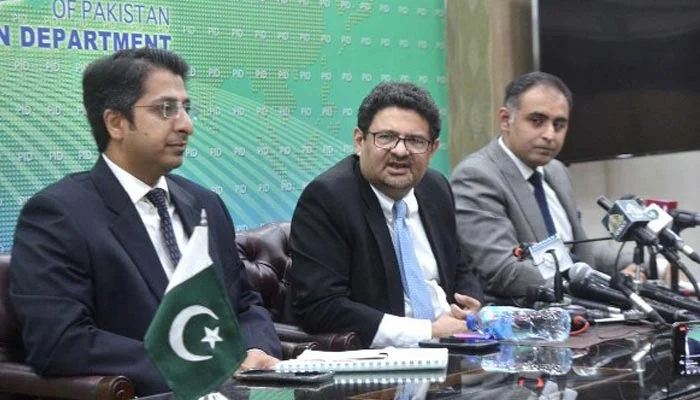ISLAMABAD, July 20(ABC): As the Pakistani rupee continues to plunge against the US dollar, Finance Minister Miftah Ismail blamed political uncertainty for the massive plunge of local currency against the US greenback — which slumped to an all-time of 224.92 on Wednesday.
In a phone interview, Miftah said: “In terms of the real economic fundamentals, we are fine but the political uncertainty screwed us up.”
“Fundamentally the rupee is fine, there is not much pressure on rupee in the market and we should be okay, and I think that there may be some reversal,” he added.
The finance minister told Reuters that the rupee downturn is not due to economic fundamentals. “The panic is primarily due to political turmoil, which will subside in a few days.”
Later addressing a press conference, Miftah reiterated that the local currency had depreciated against the dollar whereas it had strengthened against Pound, Euro and Japanese Yen.
He said the US dollar has witnessed a 22-year high appreciation against all currencies, however, admitted that the current political situation in the country was one of the reasons for rupee depreciation.
While quoting the State Bank of Pakistan (SBP), Miftah said that in terms of real effective exchange rate the rupee has depreciated by 3% since December keeping in view inflation.
Govt plans to level imports with exports, remittances
The finance minister revealed that the government had taken result-oriented measures to level imports with exports and remittances.
“We are trying to bring imports almost equal to exports and remittances. Because we do not have space in foreign exchange reserves to reduce these and we also do not have other reserves. Therefore, we want to strike a balance between imports, exports and remittances.”
The minister said that soon after assuming power, the government-initiated measures to reduce imports and it achieved success in June when the non-energy import bill went down 15%.
However, he added, the energy imports increased due to price-hike in the international market and the import bills surged by 120% last month. He said, there were imports of $7.4 billion last month including $ 3.7 billion in energy and $3.7 billion in other imports.
He said the government had taken many measures including improving letter of credit (LC) margins and banning assembled vehicles and mobile phones. It also reduced the speed of local manufacturing of cars, vehicles and fridges. It also made it mandatory for $100,000 LC to get permission from the central bank.
He said the economic fundamentals of trade have been corrected as imports are almost equal to remittances and exports. There is little current account deficit, which could be financed.

